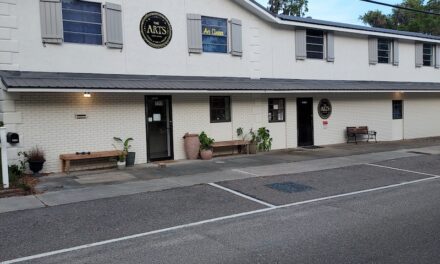Â
In the wake of Hurricane Matthew, an insurance agent explains what he can do for his clients – year-round.
Insurance is not straighforward and I find myself, an insurance agent, having to read and re-read policy forms to determine exactly what they say . . . or don’t say. When you purchase an insurance policy, you are buying something that is often expensive, intangible, you hope you never have to use, and when you do need it, you are terrified that it won’t work the way it should. Therein lies the reason a relationship with an insurance agent can truly benefit you as the buyer – if you take advantage of it.
Â
Your insurance agent should serve a purpose beyond just finding the least expensive coverage for you. If your sole concern is price, then you are only utilizing part of the resources available to you. You should regard your insurance agent as a trusted advisor, much like your CPA or attorney, and not simply the seller of your insurance.
Agents can help educate and navigate you through the options available for protecting yourself, your loved ones, and your assets. Remember, the only ignorant insurance questions are the ones you don’t ask. Everyone has different risk tolerances, and an agent can help explore various options for coverage, often at no cost to you.
If you have not reviewed your insurance coverage recently, ask your agent for 30 minutes via phone or in person to perform a coverage review. They will gladly review the coverage you have to make sure it is still adequate and accurate for your circumstances. Life happens and we often forget to tell our agent about things such as the $50,000 addition to the house or the golf cart that was recently purchased. There are things that can sometimes be easily covered on an existing policy that could potentially cause serious issues in the event of a loss should you not notify your agent.
There are two different types of insurance agents: direct and independent. Direct agents work solely with or for one company. Independent agents have contracts with multiple companies. Whichever option you choose, the key is to have a relationship with an agent who you trust and can provide the products and level of customer service you need.
Working with an agent who is located in a coastal area has its benefits, too. Agents in other areas may be very well qualified, but not fully aware of specifics that coastal agents deal with on a daily basis. For example, finding homeowners companies that offer lower windstorm deductibles, or named storm deductibles, or even hurricane deductible options. Or helping explain why enclosing the bottom story of your home may have some serious consequences with your Flood insurance.
Agents are also your advocates in the event of a claim. They can help facilitate communication between you and the claims adjuster. Every claim situation is unique, but I have seen situations in which, because the agent was directly involved in the claims process, the outcome for the client was significantly in the client’s favor.
Thanks to certain weather events in the Lowcountry, many people have recently contacted their insurance agent. Your agent should be someone you consult regularly, someone who advises you on various matters at all times, rather than just another bill to pay or a resource after a claim occurs. I can assure you that your insurance agent is ready, willing, and able to start the conversation about your insurance plan right now.
Thomas Tayloe is an account executive with Kinghorn Insurance at 910 Carteret Street in Beaufort. 843-521-4000. www.insurancebeaufort.com








